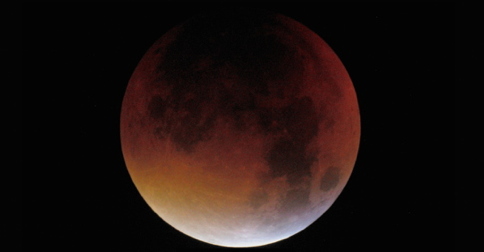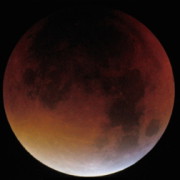Super
 Last night we had the coincidence of a supermoon and a total lunar eclipse. A supermoon is a full moon when the moon is at its closest to the earth, and a lunar eclipse is the moon’s passing through the earth’s shadow. The last time this happened was 1982.
Last night we had the coincidence of a supermoon and a total lunar eclipse. A supermoon is a full moon when the moon is at its closest to the earth, and a lunar eclipse is the moon’s passing through the earth’s shadow. The last time this happened was 1982.
Back in 1982 there were still quite a few people who gave super the pronunciation /ˈsjuːpə/, as if it were s-you-per:
I fairly often find myself teaching non-natives who pronounce it this way, and who are shocked to be told it’s no longer a common pronunciation. Such speakers may be quite young, but had old-fashioned teaching. Nowadays the typical standard pronunciation has no /j/ and begins like soup:
This goes beyond the word super. In fact, teachers of English pronunciation today can reasonably give their students a nice general rule: English words never begin with /sj/. This goes for supervise, supermarket, sue, suit, suitable, suicide, superb, superfluous, superior, supreme, Susan, and so on.
There are still some British speakers who say such words with /sj/, but many natives now find this amusingly old-fashioned. Even at the time of the last supermoon-eclipse it was on the way out. Windsor-Lewis’s 1974 dictionary of ‘General British’ gave only the /j/-less pronunciation of super, and Gimson’s 1977 dictionary of ‘Received Pronunciation’ put the /j/-less pronunciation first, with the advice
Note.– super in isolation and in compounds is increasingly ˈsuːpə.
I wonder how many users of /ˈsju:pə/ will be around when the next supermoon-eclipse occurs, in 2033?

